Mosquitoes are one of the most annoying insects, especially since they can harm human health. If you don't want to purchase mosquito repellents, you might be looking for natural options to incorporate into your landscape. Does rosemary repel mosquitoes? After much research, we have determined the answer.
Yes, you can use rosemary to repel mosquitoes. It is one of the most effective natural mosquito repellents. In addition, you can grow this plant quickly and easily in your garden.
As mentioned, there are numerous plants that you can use to repel mosquitoes. And the good thing about them is that you can quickly grow them in your yard, especially since they are widely available in garden stores. Please keep reading to know these plants and learn how to repel mosquitoes. Let's delve into the details!
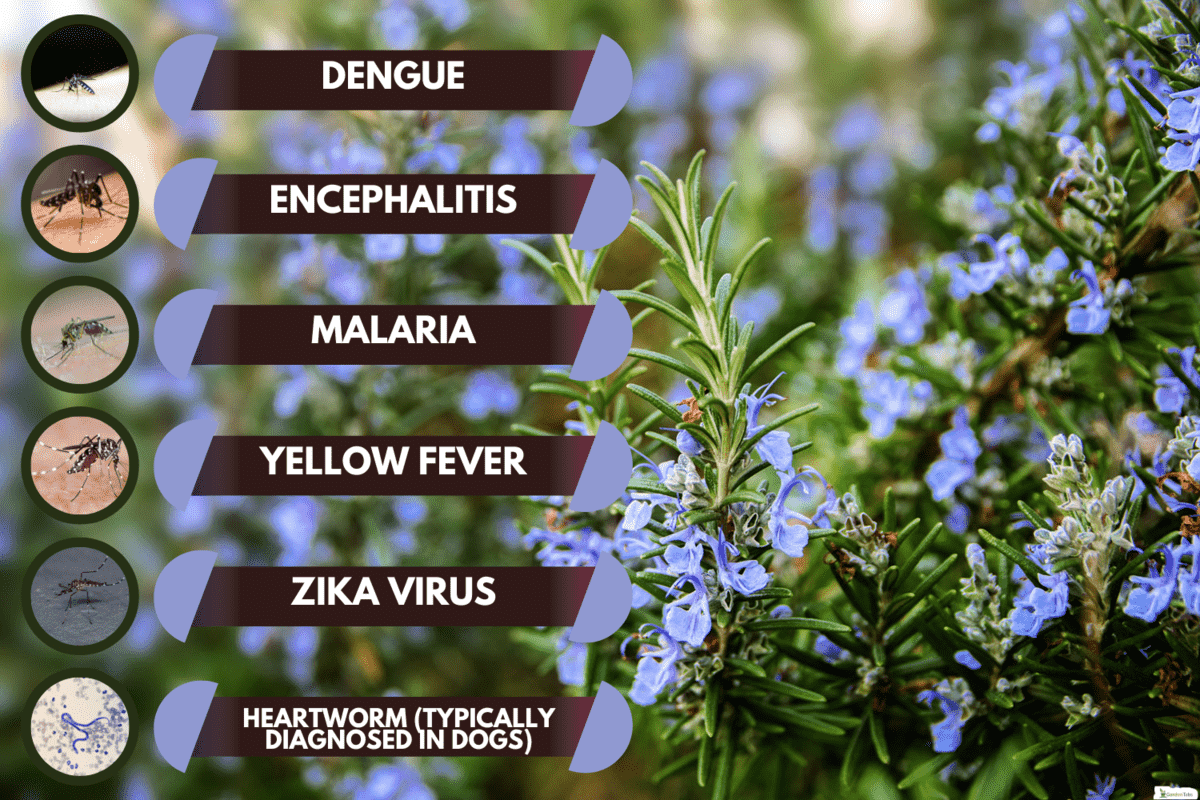
How Important Is Repelling Mosquitoes?
The only and most crucial reason you should repel or eliminate mosquitoes is that they produce or spread many diseases. And these include the following:
- Dengue
- Encephalitis
- Malaria
- Yellow fever
- Zika virus
- Heartworm (typically diagnosed in dogs)
In other words, the health of your family and pets is at stake, not just the discomfort of their bite. Good thing that using plants or herbs to deter mosquitos is just as easy as chopping, smashing, or cutting them and spreading them on surfaces outdoors.
Can You Use Rosemary To Repel Mosquitoes?
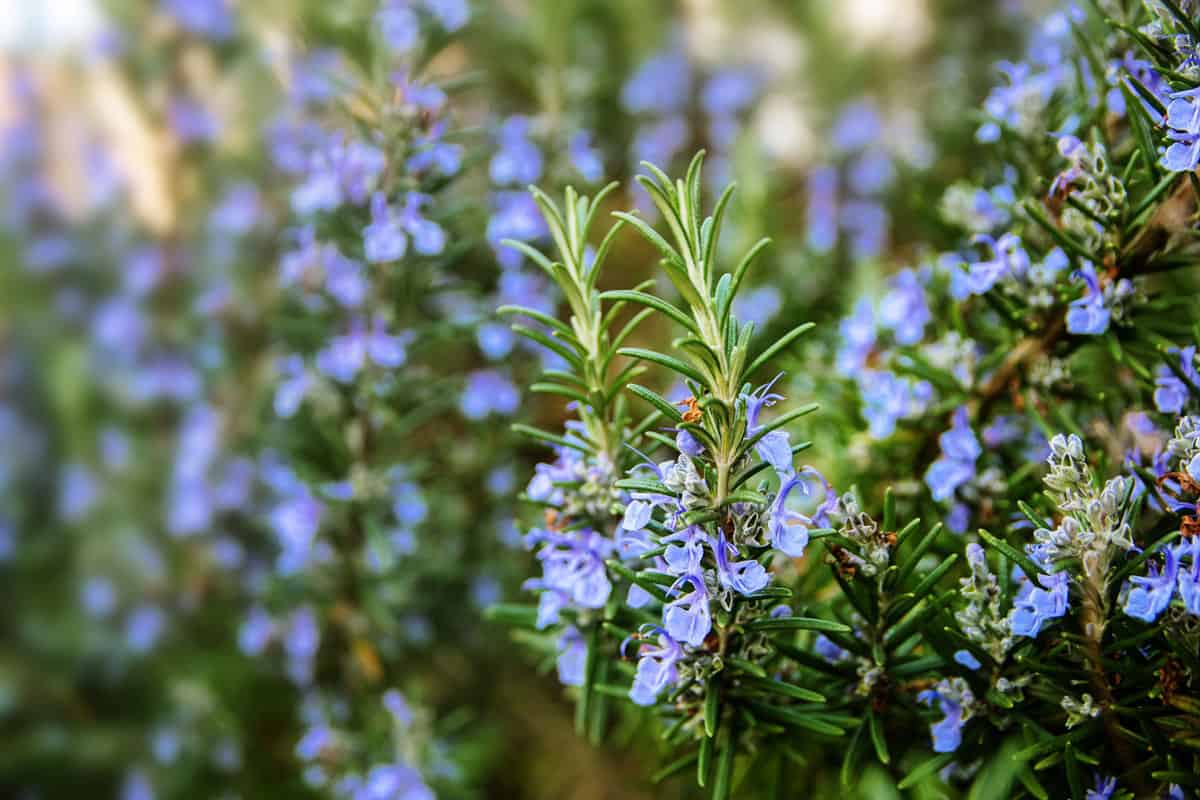
Rosemary is a common herb, and its woodsy aroma is effective at deterring not only mosquitoes but also moths and flies.
It prefers warm, dry weather, and you can grow it successfully in pots year-round. Rosemary plants are versatile and make excellent accents or ornaments because of how easily you can trim to shape them.
In addition, you can utilize rosemary to season food, aside from deterring bugs, and take pleasure in its aroma.
How To Properly Care For Rosemary Plants
Caring for rosemary is straightforward, especially if you know how to do so. If you are unfamiliar with their growing requirements, you can refer to the following details:
Does Rosemary Need A Lot Of Water?
It is a helpful feature that, once established, rosemary can withstand periods of drought well; in fact, underwatering is preferable to overwatering.
The ideal watering approach is to only water the rosemary plant when the soil is dry. Remember never to let the soil waterlog to prevent root rot from occurring.
Does Rosemary Need Full Sun?
Rosemary can only grow in direct sunlight. It implies that it necessitates at least six hours of direct sunlight daily, even on cloudy days.
When cultivating indoors, a south-facing window is best, and artificial light is essential, especially to boost the light. You should move your houseplants outside during the warmer months to soak up the sun.
Know that lack of proper lighting can lead to stunted, unhealthy development.
What Temperature(s) Can Rosemary Tolerate?
This plant thrives in sunny locations with high temperatures and low to medium humidity. Most rosemary species die off below 30 degrees Fahrenheit, although they can take quite a bit of heat.
They're most comfortable in a range of 55 and 80 degrees Fahrenheit. However, know that if rosemary plants can't correctly breathe or there is no adequate air that surrounds them, expect that they might obtain fungal diseases or root rot.
What Type Of Soil Is Best For Rosemary?
For optimal growth, rosemary prefers sandy or loamy soil with good drainage. And the suitable soil pH ranges from slightly acidic to neutral, specifically 6.0 to 7.0. Moreover, it is highly advisable always to remember never to plant them in damp and clay soils.
Should I Fertilize Rosemary?
Rosemary does well on a light diet. You can ensure a robust foundation for the shrub by introducing compost or mulch into the ground at the germination stage. Then, keep encouraging sustainable growth and development by applying a balanced liquid fertilizer per the directions on the label.
Are Rosemary Plants Self-Pollinators?
It is good that rosemary plants can self-pollinate and bring beneficial insects like butterflies and bees to your yard.
All you have to do is take flowering rosemary plants outside during hot climates to facilitate organic pollination.
What Other Plants Or Herbs Can You Use As A Mosquito Repellent?
It is somewhat satisfactory to eliminate mosquitoes, especially if they hinder or ruin your enjoyment outdoors.
You probably know only a few plants you can use to get rid of mosquitoes. So, it would be best to check the following herbs and plant them in your garden to create mosquito or other insects and pest repellents.
Catnip
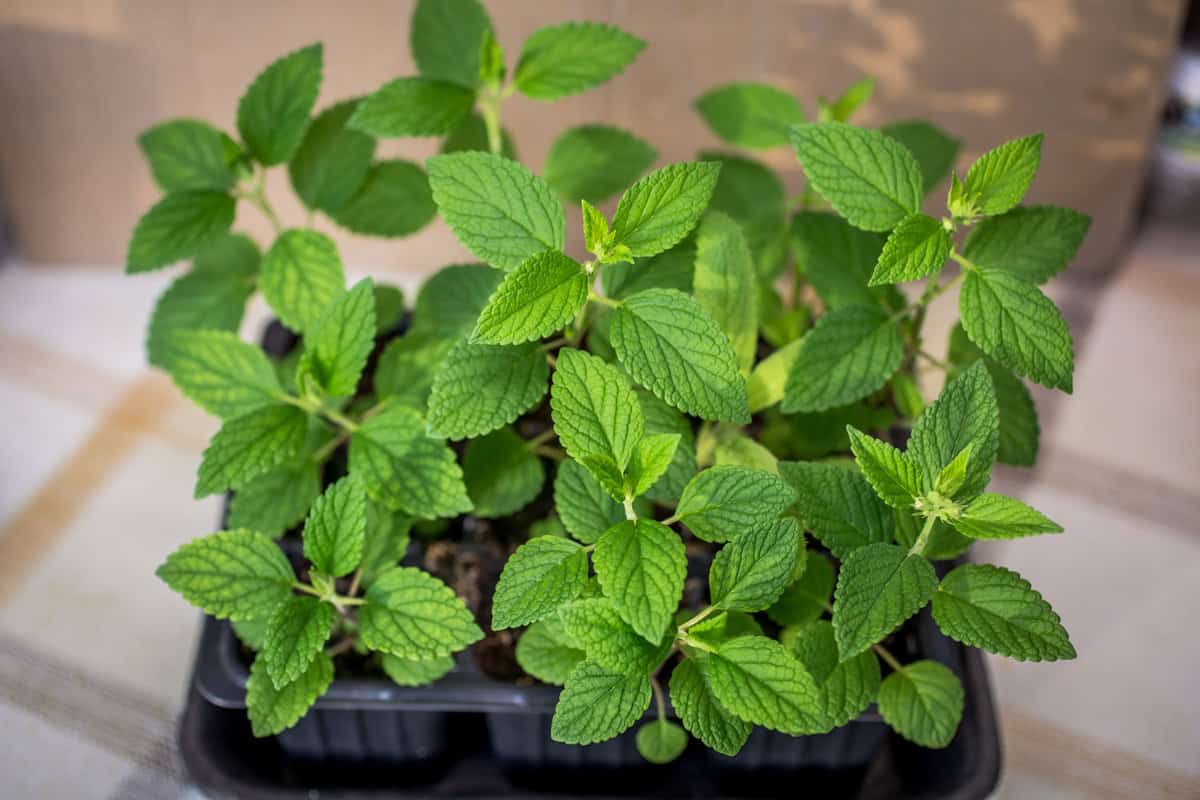
Catnips belong to the mint family, which makes it another option to deter mosquitoes. It is best to use in your patio and pool area. All you need to do is scatter some catnip trimmings around the edges of your patio to create a bug- and insect-free zone.
Eucalyptus
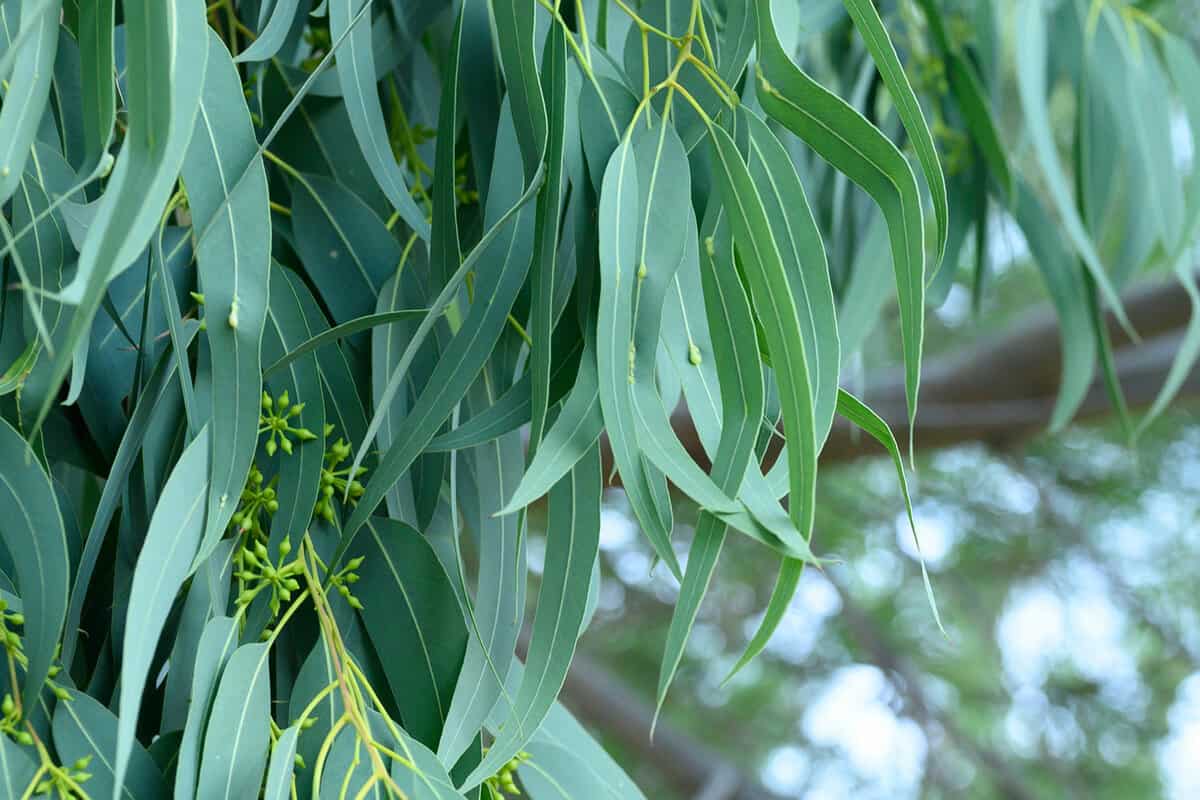
Because of the eucalyptus' fragility, it is better to grow it in a container than in outdoor planting.
Quick-growing species such as E. globulus subsp. bicostata are ideal for short-term gardening since they produce abundant scented leaves that you can utilize to repel mosquitoes.
On the other hand, a slow-growing one such as E. vernicosa is an excellent option for those who want a potted eucalyptus that will last for many years.
Marigold
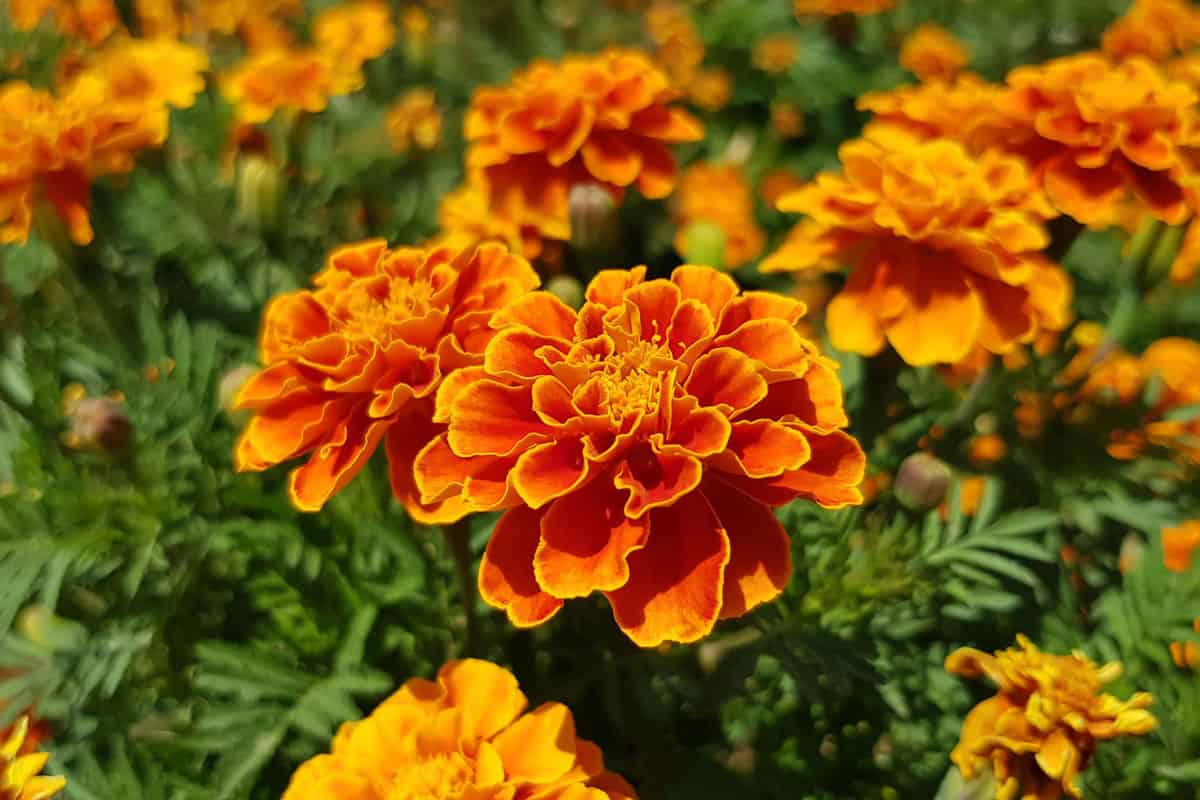
Marigolds emit a distinctive and strongly aromatic scent. These mosquito-deterring annuals are a nice complement to the blossoming vegetable garden and may also deter other pests.
Marigolds' ability to deter insects comes from a chemical called pyrethrum, which is also present in numerous varieties of organic insecticides.
Mint
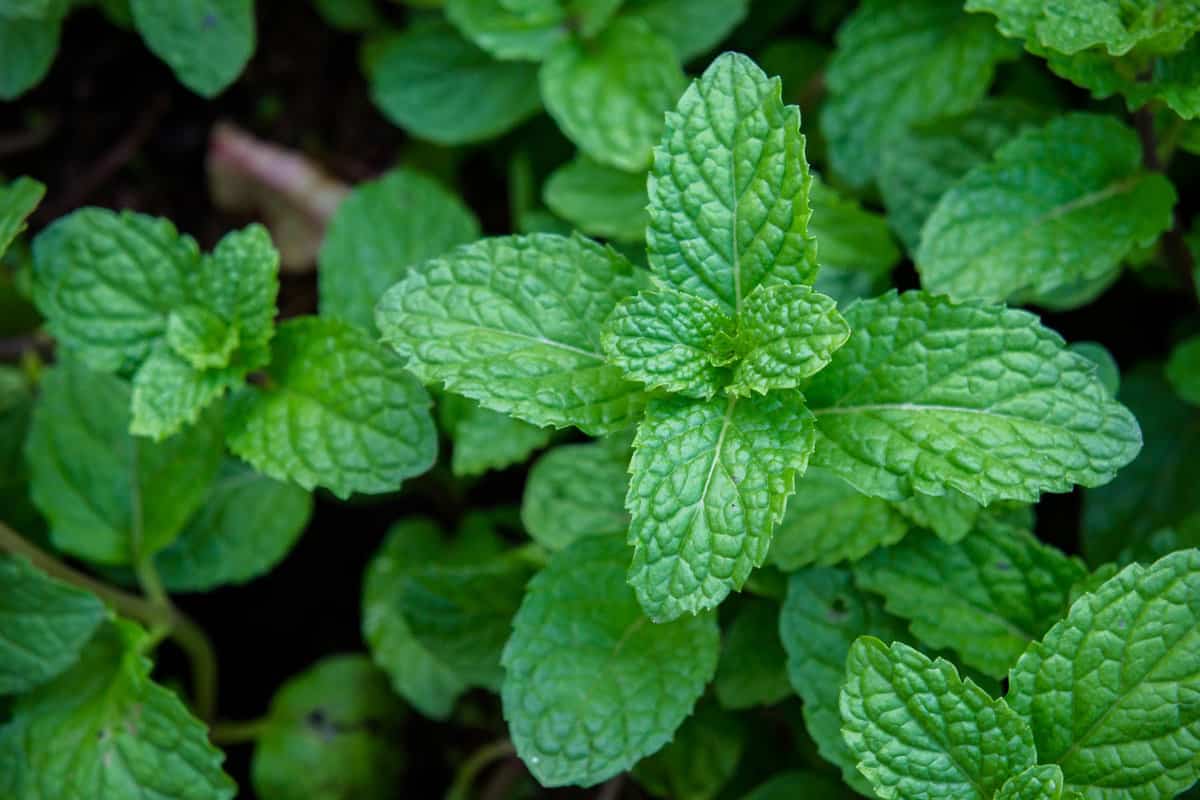
All mint varieties work to keep mosquitoes away. In your quest to rid yourself of mosquitoes, feel free to recklessly pluck any variety of mint because it grows and expands rapidly and can easily overrun a flower bed.
Thyme
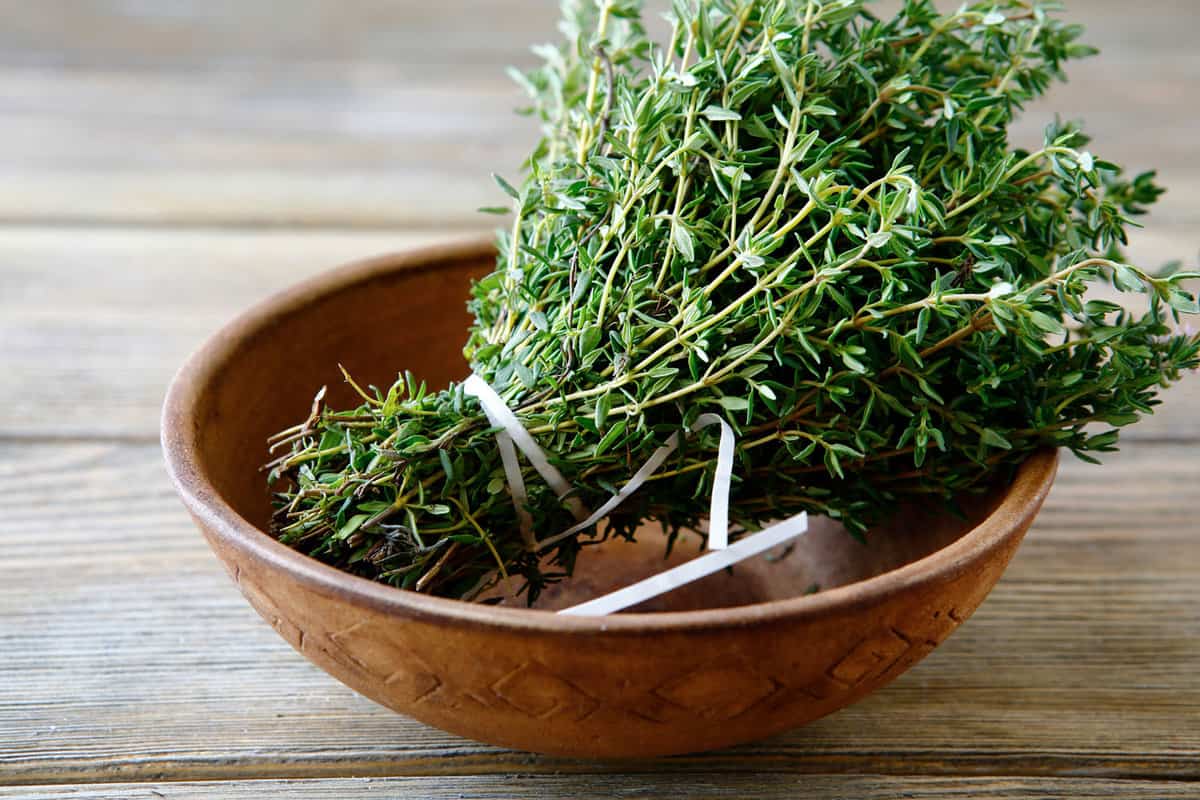
Thyme is another tasty herb you can grow and utilize to ward off those annoying mosquitoes. Using this herb is straightforward.
You can keep mosquitoes away from your yard by planting thyme at the edges of your patio or between stepping stones. Once they have grown, you can use them already by smashing a few pieces of foliage to discharge the oils.
Lemongrass

It is one of the most popular mosquito deterrents homeowners know. The oil of this plant smells strongly of lemon. As well as being an essential ingredient in the Asian cuisine, lemongrass is also a perfume ingredient.
Although lemongrass dies back in the winter season below zone 9, it swiftly grows when cultivated in a container.
Moreover, to keep mosquitoes at bay and provide a pleasant scent to your next outdoor event, slice up some of the plant's leathery leaves and scatter them in your surroundings.
Lavender

Lavender is popular for its fragrant purple flower spikes. But aside from that, its sweet, soapy aroma pervades everything around it, even the stems and leaves.
The pleasant smell of lavender makes them ideal for use as a natural mosquito repellent by rubbing them on your skin.
Bee Balms
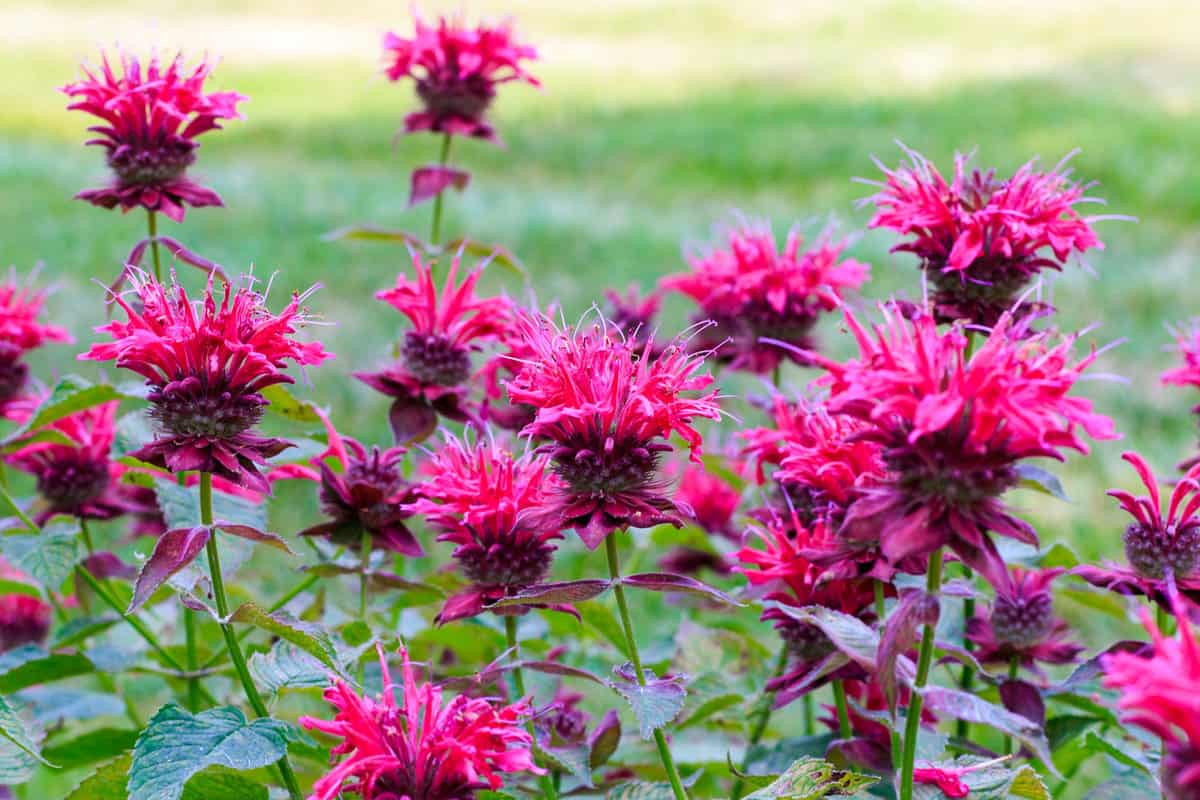
In contrast to its reputation for luring beneficial insects, this perennial plant drives away mosquitoes and other pests.
To use bee balm as a mosquito repellent, you only need to crush a few foliages to discharge their aromatic oils.
Basil
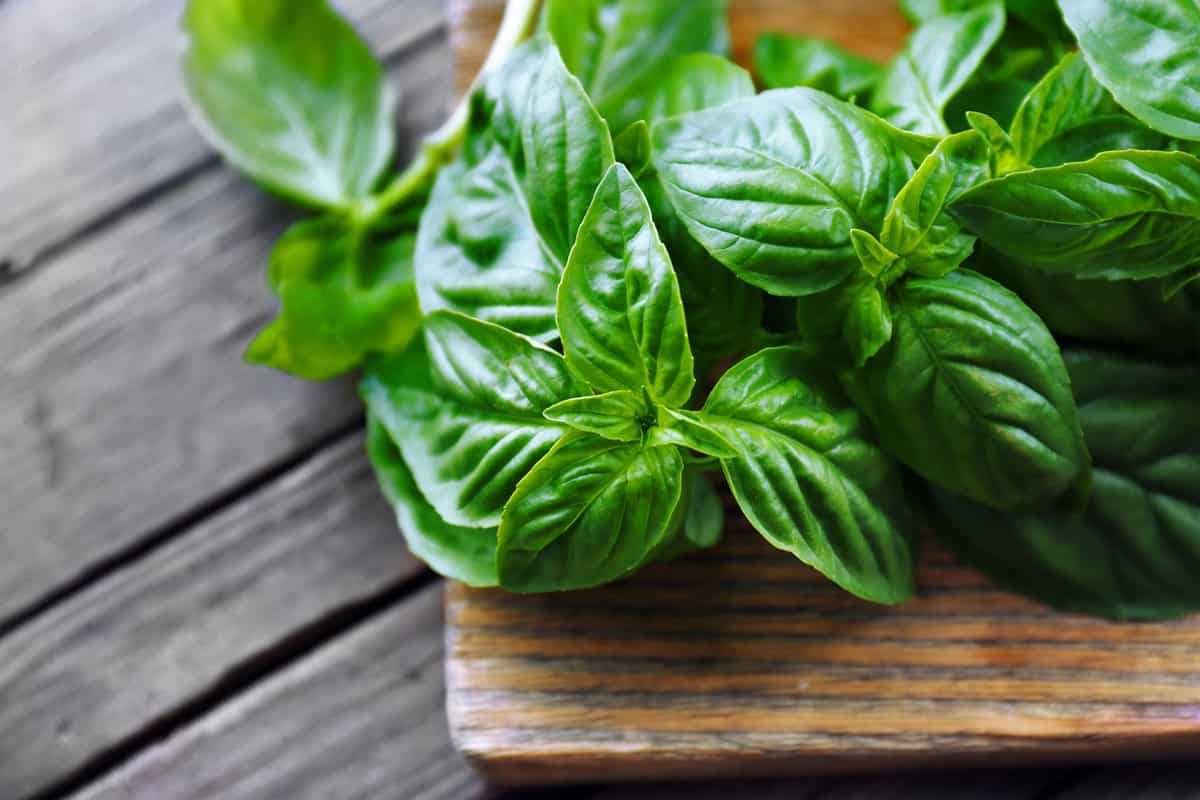
Basil's rapidly expanding foliage is offensive to mosquitoes. However, not all basils are equal when it comes to warding off mosquitoes.
The extra-spicy Thai variety, with its slender leaves and cinnamon aroma, is the most effective. So, if you wish to grow basil in your garden, know that you can incorporate tomatoes as companion plants since they share the exact growing requirements.
Scented Geranium
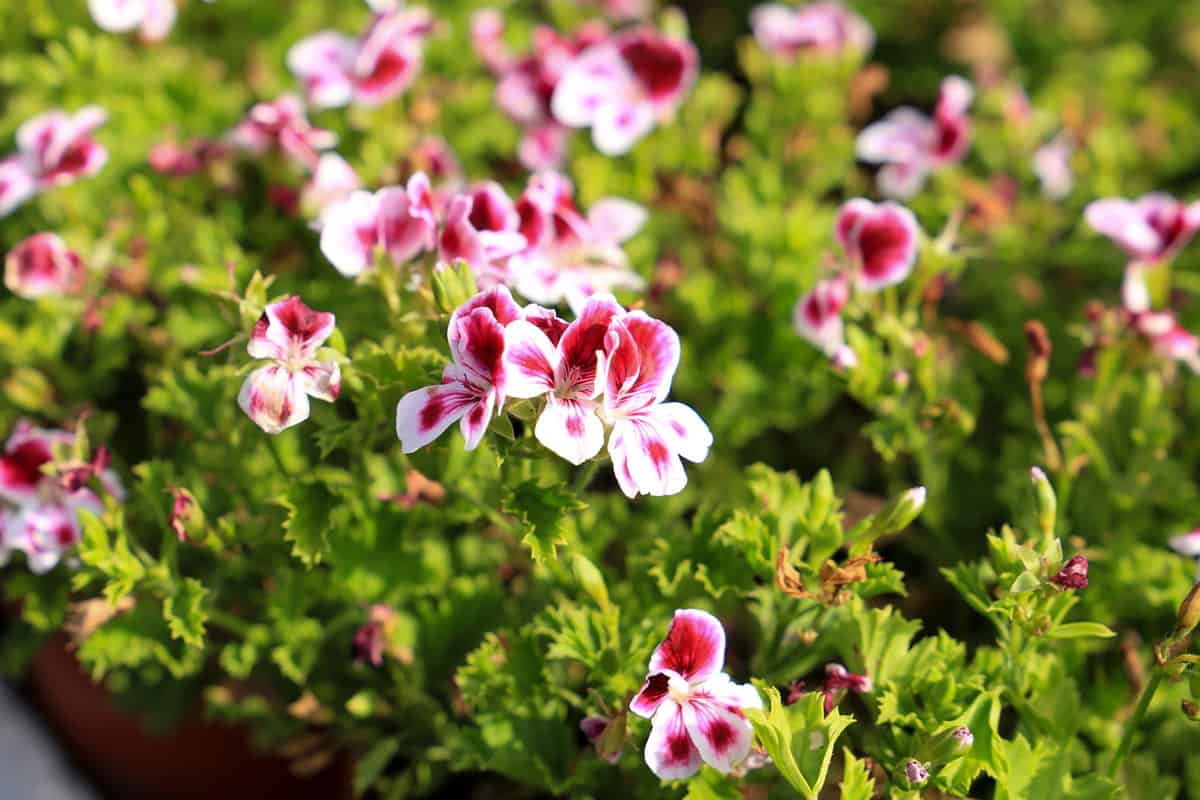
Many different types of geraniums have been developed specifically for their strong aroma. Note that the most effective ones are those that have a lemony aroma.
Scented geraniums are perennials in hotter areas. On the other hand, they are annuals in most cases, especially in colder climates. In addition, most homeowners use geraniums as ornamental houseplants.
Garlic
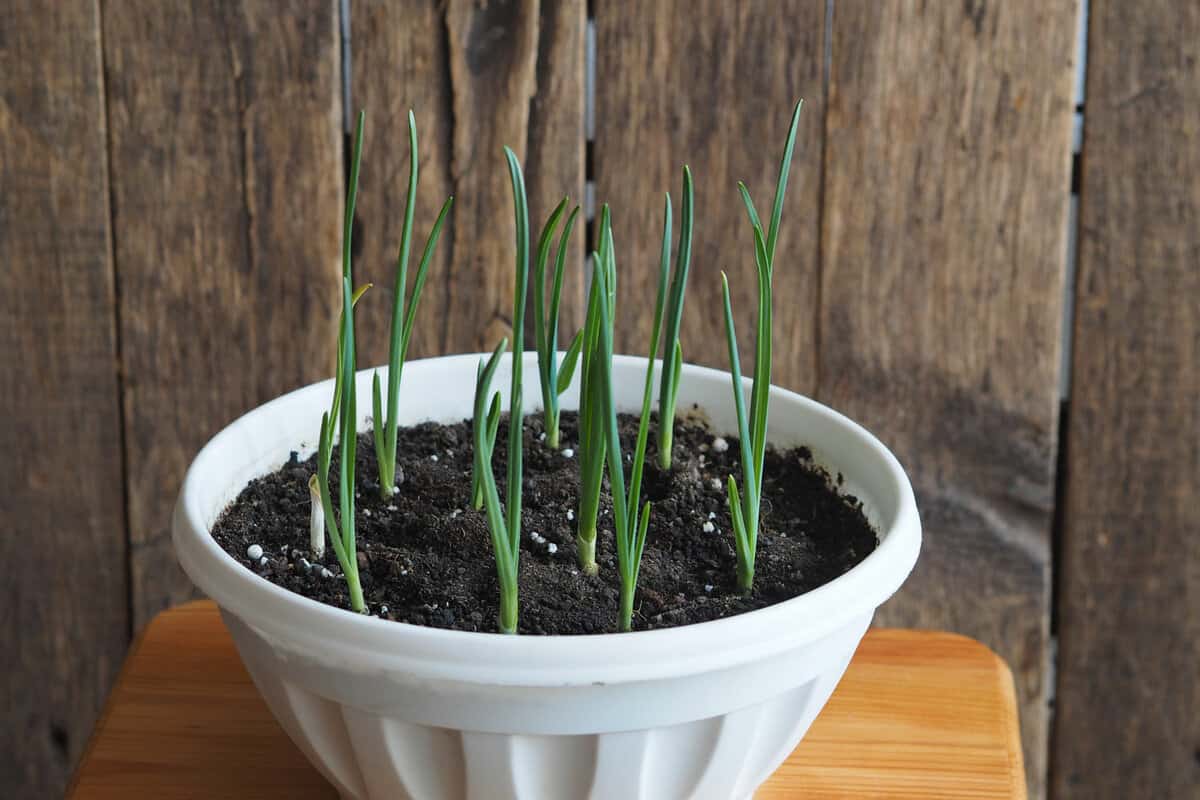
Garlic is just one of the members of the Allium family. Most people don't know that garlic can help deter mosquitoes just by being present in the garden.
However, it would be best to prevent your cats and dogs from going closer to it when growing garlic. Keep in mind that garlic and other allium plants can be toxic to pets when ingested.
Sage
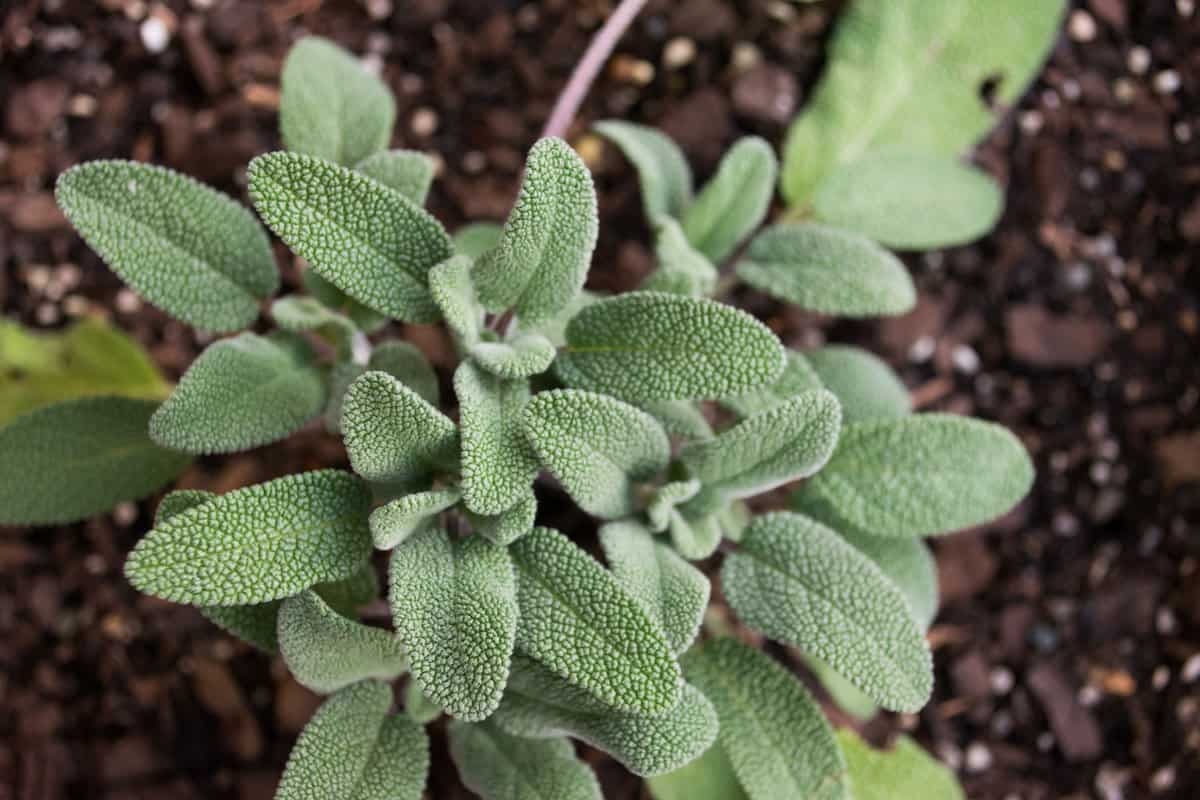
Salvia officinalis, commonly known as sage, is a perennial plant that grows into a shrub-like form and is advisable to use as a mosquito repellent.
Mosquitoes won't bother you because of the strong, pleasant scent. You can keep the mosquitoes at bay for hours by tossing leaves into a fire pit.
Note: dividing your sage plants every few years is crucial to keep them from getting woody and sparse.
Check out these sage sticks on Amazon.
American Beauty Berry
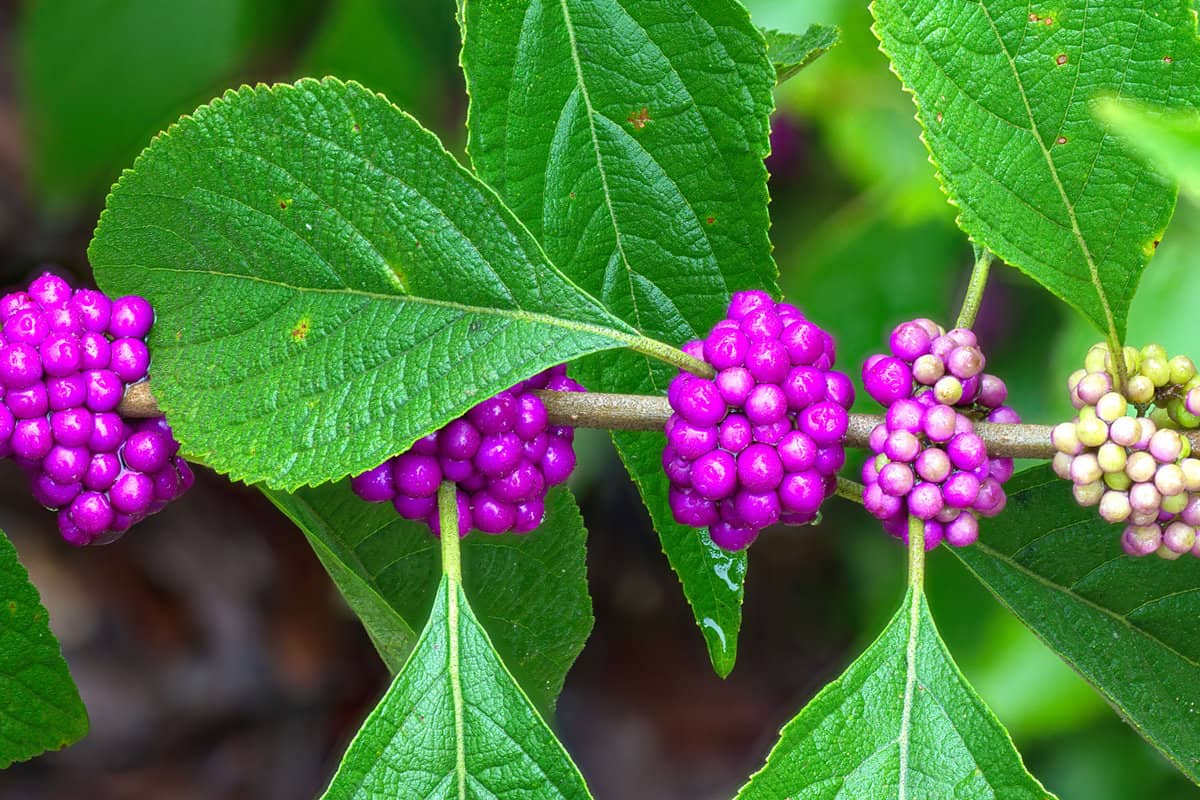
Even though American beauty berry's little white blooms aren't particularly attractive, the diminutive shrub's bright magenta berry clumps are a sight to behold.
Crushing the leaves of the American beauty berry releases a fragrance perfume that deters insects, including mosquitoes, and the berries can survive well into the cold, attracting and feeding wildlife.
Let's Start Repelling Mosquitoes!
Now you know the different plants or herbs you can use to eliminate those irritating mosquitoes. Additionally, you can now start growing rosemary plants in your garden and follow everything discussed in their growing requirements. However, if you wish to produce all the mentioned herbs or plants, you are free to do so.
You have finally made it to the end! We hope this post answers all your concerns. If you wish to continue reading, feel free to check these related posts out!
How Much Sun Does Rosemary Need? [And Can It Get Too Much?]

